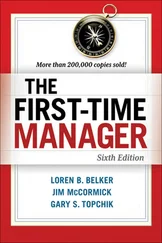Джон Болл - The First Team
Здесь есть возможность читать онлайн «Джон Болл - The First Team» весь текст электронной книги совершенно бесплатно (целиком полную версию без сокращений). В некоторых случаях можно слушать аудио, скачать через торрент в формате fb2 и присутствует краткое содержание. Год выпуска: 2013, Жанр: Триллер, на английском языке. Описание произведения, (предисловие) а так же отзывы посетителей доступны на портале библиотеки ЛибКат.
- Название:The First Team
- Автор:
- Жанр:
- Год:2013
- ISBN:нет данных
- Рейтинг книги:5 / 5. Голосов: 1
-
Избранное:Добавить в избранное
- Отзывы:
-
Ваша оценка:
- 100
- 1
- 2
- 3
- 4
- 5
The First Team: краткое содержание, описание и аннотация
Предлагаем к чтению аннотацию, описание, краткое содержание или предисловие (зависит от того, что написал сам автор книги «The First Team»). Если вы не нашли необходимую информацию о книге — напишите в комментариях, мы постараемся отыскать её.
Student protesters are being slaughtered in the Midwest.
The Jewish pogroms have begun.
You are now living in Soviet — occupied America!
One nuclear submarine and a handful of determined patriots against the combined might of Russia and Soviet-occupied America… The Most Explosive and Gripping “What If” Novel of Our Time!
First published January 1971
The First Team — читать онлайн бесплатно полную книгу (весь текст) целиком
Ниже представлен текст книги, разбитый по страницам. Система сохранения места последней прочитанной страницы, позволяет с удобством читать онлайн бесплатно книгу «The First Team», без необходимости каждый раз заново искать на чём Вы остановились. Поставьте закладку, и сможете в любой момент перейти на страницу, на которой закончили чтение.
Интервал:
Закладка:
He did not choose to do any translating that morning. He had a typewriter available, but whatever he wrote would be read by cold unfriendly eyes and he did not want to give them even that limited satisfaction. On the back of his desk he had a few reference books and one or two others that he had put there to read when he might have the chance. He picked one of them out, adjusted the lamp on his desk, and prepared himself to concentrate.
He had been reading for a little more than an hour when he was sharply interrupted. Without ceremony or any respect whatever for his privacy, two men came into his office. They were not the same ones who had been on the gate, but they had been stamped out by the same machine — hard, insensitive briquets of men, fashioned for utility purposes only. Before Hewlitt could adjust himself to their sudden appearance, one of them, with a flip of his hand, gestured him to his feet.
Hewlitt drew breath to speak, but then the strong sense of caution that had been growing within him like an onrushing tide told him to keep his mouth shut. In his own language the man who had motioned him up said, “We will search your office.”
There was no choice but to comply. Hating it intensely, he would be a futile gesture and he had resolved that there would be no more of those. From there on in everything, no matter how small or unimportant, would have to be made to count. He waved his own hand in an equally economical gesture giving them free access to his limited cubicle.
As they went through his desk he saw that they were thorough, they took nothing for granted. He had given up smoking; when they found an old package of cigarettes in his desk they emptied out the contents and checked for anything that might be concealed inside. When they had finished with the desk and had examined the few fixtures, the leader of the two motioned to Hewlitt to turn around.
There was no choice but to comply. Hating it intensely, Hewlitt permitted himself to be searched. The hands were steely that prodded his body, that even felt up into the crotch of his trousers.
Rage began to mount in him and he had to fight hard with himself to force it down.
When the ordeal was over, there was a pause while the man who had searched Hewlitt consulted a notebook. “You are an expert in the art of karate,” he declared.
Hewlitt found a bit of savage satisfaction in proving him wrong. “No,” he answered. “That is a Robert Hewlitt. I don’t know him — I’ve seen his name in the papers.”
The man wrote. “Your name is not Robert?”
“No, it isn’t.”
Another note went into the book, then the writer spoke to his companion. “He has no weapons,” he said, and there was almost a suggestion of contempt in his tone.
The hell I haven’t, Hewlitt thought. I’m not your karate expert, but I have a brain in my head that you can’t feel or take apart to see what’s inside. And you are a numbskull lout because you speak like a peasant and you’re not even comfortable in your own language.
That was what went on in his mind. But externally, on his face, he betrayed nothing. His insides were knotted and his spirit cried for action, but he knew that for the moment he could do nothing.
4
It was all that Hewlitt could do to keep his voice civil as he ordered his lunch over the telephone. Each minute that had passed since the invasion of his office had contributed to a slowly mounting rage that was building up within him. He discovered that in spite of himself his hands were clenching and unclenching as though they could not stand the inaction.
To attempt anything, he knew, would be useless. Worse than that, if it did not destroy him, it would cancel out any possible chance he might have to do something really effective at some time in the future. He told himself that he would undoubtedly have to face much worse, probably very soon, and that above all he would have to remain in possession of himself.
The food, when it came, did nothing to assuage his blackening mood; he ate mechanically while his mind raced ahead, planning things that he might do, whetting itself to seize every opportunity, no matter how minute, to begin the counterattack. He had only one solid thing to hold onto at that moment: the very brief conversation he had had with Bob Landers. That had told him that he was not alone, that there were others, and that there was hope. Hope. He had never known how magical that word was before.
To ease his frustration he turned back to the book he had been studying. It was thin comfort, but it might yield something that he could make use of and his mind, like his physical body, thirsted for action.
The summons came when he was not expecting it — a little after two when he had his mind well geared into the studying he was attempting to do. He was called on the phone as he had been before; this time the female voice seemed almost apologetic. “Mr. Hewlitt, Mr. Zalinsky would like you to report to him immediately in the Oval Office.*Bring paper and pencil.” As the line went dead Hewlitt sensed that she had wanted to say something more, but that she had not dared.
Reaching into his desk with a forced calm, he took out two pencils and a long, yellow ruled legal pad. This time he wanted to write everything down, although it would probably be unnecessary. He owed his exceptional language capability in part to his mnemonically trained mind; no one had total recall, but there were times when he could come close, and that ability had been highly useful to him in the past. The idea stabbed him that this might be a weapon, a small talent that might not be known or reported in his dossier. He took two or three deliberate deep breaths to steady himself and then went to keep his appointment.
He was ushered in without ceremony. As he entered and looked at the man who was sitting behind a desk that had belonged to three Presidents, he blocked out of his mind the idea that this was an impostor. He looked a little more formidable now — not because of the chair he was occupying, but because his physical imperfections were less visible and any uncertainty there had been in his manner the previous day was now apparently gone.
Zalinsky looked at him and said without emotion, “You will sit down.”
“Yes, Mr. Zalinsky.”
The man from overseas leaned back and contemplated him. “In which language do you wish to speak?” he asked.
“Entirely as you wish, it makes no difference.”
Was Zalinsky trying to woo him with that minor concession of courtesy? He did not have time to decide.
Zalinsky picked up a folder from the top of the desk. “I have read the files about you,” he said in English, “yours and ours. Why are you not married?”
Instantly Hewlitt knew that the answer might be in the confidential personnel evaluation which was in Zalinsky s hand; therefore the best tactic would be to tell the truth. “I wanted to be,” he said. “I expected to be. Then something intervened which was not of my choice. After that I decided to play the field for a while.”
“You are not then a homosexual?”
“I am not.” This time he let hardness come into his voice, as would be expected of him.
Zalinsky noted it as Hewlitt knew that he would. “It will do you no good to become angry, no good whatever. You are, I know, at the moment with anger because you were searched this morning. It will happen many times again.”
Hewlitt managed to say nothing.
“I will now speak with plainness,” Zalinsky said, “because it is my wish. Before we are making occupation here we made a choice of certain people for usefulness and you are one of them. You understand why.”
“Because I am familiar with the operation of the White House and I speak your language perfectly.”
Читать дальшеИнтервал:
Закладка:
Похожие книги на «The First Team»
Представляем Вашему вниманию похожие книги на «The First Team» списком для выбора. Мы отобрали схожую по названию и смыслу литературу в надежде предоставить читателям больше вариантов отыскать новые, интересные, ещё непрочитанные произведения.
Обсуждение, отзывы о книге «The First Team» и просто собственные мнения читателей. Оставьте ваши комментарии, напишите, что Вы думаете о произведении, его смысле или главных героях. Укажите что конкретно понравилось, а что нет, и почему Вы так считаете.












